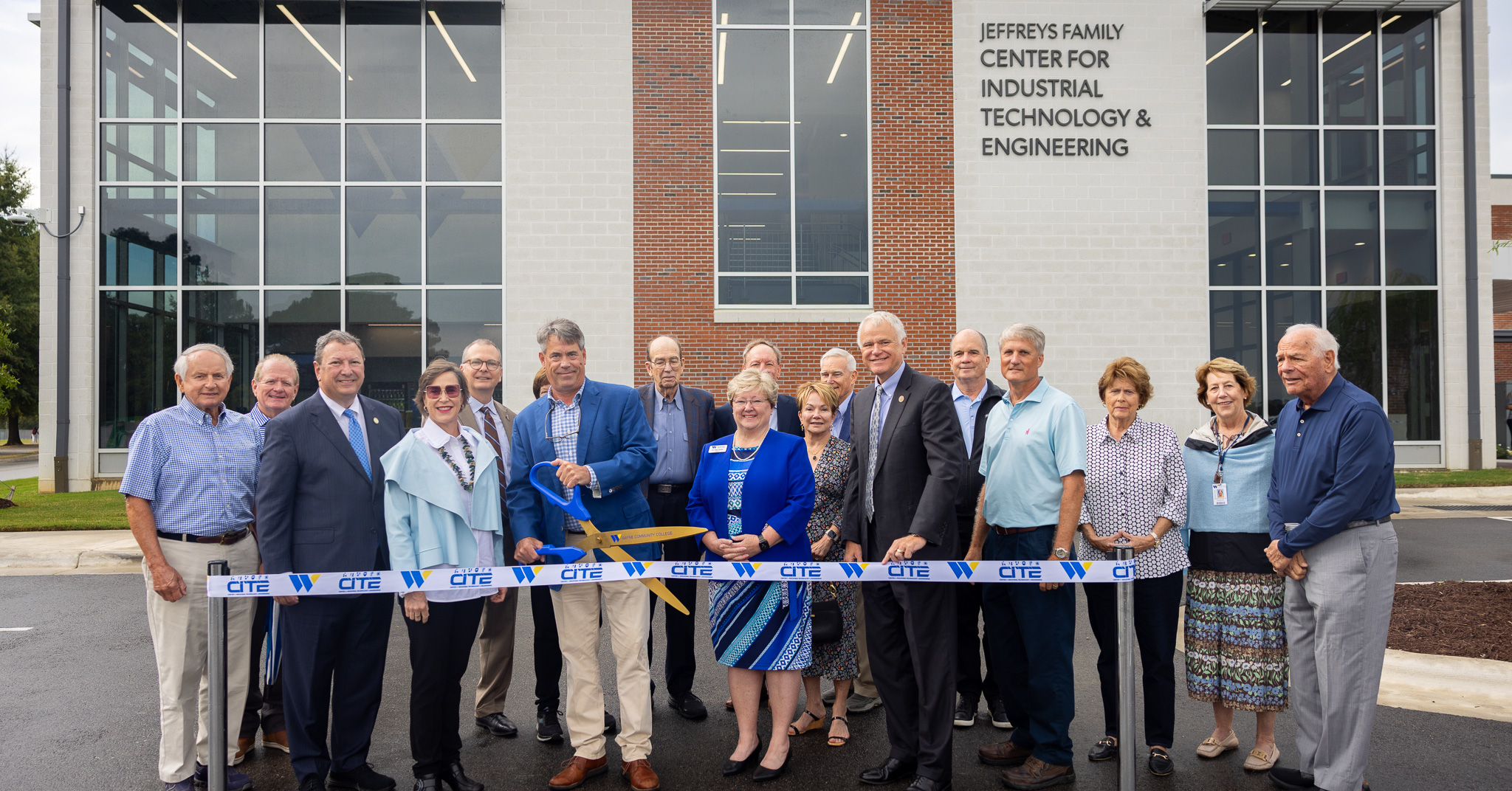GOLDSBORO, N.C. – Wayne Community College officially opened its new Center for Industrial Technology and Engineering (CITE) on Tuesday with a ribbon-cutting ceremony attended by more than 100 community leaders, donors, employees, and students.
The 42,000-square-foot facility, now the second-largest building on WCC’s campus, represents a significant investment in technical education and workforce development for the region. CITE houses several programs from the college’s Applied Technologies division, including Computer-Integrated Machining, HVAC, Industrial Systems Technology, Mechanical Engineering Technology, Mechatronics Engineering Technology, and Operations Management.
“We know their futures are bright, and the training they receive in CITE is certain to have a direct impact on the success of our local industries, benefitting all of us,” said WCC President Patty Pfeiffer during the ceremony.
The modern facility features specialized classrooms, laboratory spaces, a machine shop, flexible-use areas, and faculty offices designed to serve both college-credit students and those enrolled in Workforce Continuing Education Services.
Major Donors Enable Project
The center, formally named the Jeffreys Family Center for Industrial Technology and Engineering, was made possible through donations from William and Ellen Bland and Robert Jeffreys. Scott Newton, chair of the Foundation of WCC Board of Directors, praised the Jeffreys family’s commitment to student success.
“Thanks to their support, every student who walks through these doors will be able to hone their skills in a place of progress and innovation,” Newton said.
Additional funding came from the Golden LEAF Foundation, whose President Scott Hamilton emphasized the facility’s role in expanding economic opportunities.
“Golden LEAF is proud to be a part of this project that’s going to provide students with quality careers in advanced manufacturing and related industries,” Hamilton said. “I’ve always said that a job equals hope, opportunity, and dignity, and this training facility is going to provide that for a number of students for years to come.”
Student Perspective on New Facility
WCC alumnus Caleb Demarest, currently a Mechanical Engineering Technology student, offered insights from someone who experienced classes in other campus buildings before moving into CITE.
“CITE feels like home to Applied Technologies students as it provides the space they need to succeed,” Demarest said. “That sense of ownership in this building transfers into elevated ownership in our projects.”
He noted that the facility’s modern technology has taken WCC’s programs to “a completely new level.”
Construction Timeline and Partners
The building project began with groundbreaking in May 2023, with full occupancy starting in January 2025. Boomerang Design served as the architecture firm, while T. A. Loving Company handled construction.
David Philyaw, president of T. A. Loving Company, highlighted the importance of WCC’s graduates to local businesses.
“WCC’s student success is essential to many local businesses that rely on their skillsets in the workforce,” Philyaw said. “We are proud supporters and investors in the continued growth and success of Wayne Community College.”
Economic Development Impact
Local government officials see CITE as a crucial component of regional economic development strategy. Assistant County Manager Ginger Moore read remarks from Wayne County Board of Commissioners Chairwoman Barbara Aycock, who emphasized the facility’s role as a workforce pipeline.
“This facility is a direct pipeline from the classroom to the factory floor and from training labs to high-tech jobs,” Aycock stated.
Ven Faulk, chair of the WCC Board of Trustees, concluded the ceremony by recognizing all attendees and expressing optimism for the facility’s future impact.
“CITE is a place where education and industry meet, and I look forward to seeing how our future workforce and economy are shaped by the training that takes place inside these walls,” Faulk said.

